Welcome to one of the most active flamenco sites on the Internet. Guests can read most posts but if you want to participate click here to register.
This site is dedicated to the memory of Paco de Lucía, Ron Mitchell, Guy Williams, Linda Elvira, Philip John Lee, Craig Eros, Ben Woods, David Serva and Tom Blackshear who went ahead of us.
We receive 12,200 visitors a month from 200 countries and 1.7 million page impressions a year. To advertise on this site please contact us.
|

|
|
Rule of thumbs when accompanying singers?
|
You are logged in as Guest
|
|
Users viewing this topic: none
|
|
Login  | |
|

   
Florian
Posts: 9282
Joined: Jul. 14 2003
From: Adelaide/Australia

|
 RE: Rule of thumbs when accompanying... (in reply to Neotriz) RE: Rule of thumbs when accompanying... (in reply to Neotriz)
|
|
|
this is a big big subject but good one for conversation..., hard to know where to begin...here are some of my opinions...il start slowly and see how many big and little one i can think off and if i can arrange them in a way that they make sense...
Simply put a guitarist is there give a singer the tones and reinforce the compas or make it obvious for the singer...he is in a supporting role..this is the first rule ( or a healthy way of thinking of it), you are not there to shine on your own...or proof how good you are technically (there's ways of doing that without doing it..it will make more sense after reading bellow)
Once you adopt the right frame of your approach add...style, personality , a good guitarist will inspire a singer...a good accompanist can perform the supporting role perfectly (chords, compas) but also go way beyond and inspire so much that he gets more out of the singer than say another guitarist ( there are many factors that contribute determine something like that.. some are ...to be there in the moment with him, not switch off or play chords like a robot..this is what separates the good accompanists from the rest imo...how good are they at being in the moment with the singer and compliment and answer the voice with clinical timing and ask questions and share the singers sentiment and accent it and deliver it, their experience and understanding of that palo and particular letra)
Another Rule
Generally a guitarist shouldn't rush ahead, you listen first then do the chord, try not to anticipate too much even if you know what hes singing ...for one thing it takes away from spontaneity feeling associated with flamenco, most singers wont like it, its the same as finishing someones sentences, eventually it gets old...and also singers can decide to do something different this time ...(unless its something practiced and agreed before)
But ...like any other rules in flamenco there's always exceptions to this too...in a few cases anticipation is great!! and produces magic....(u have to be 100000% certain and know what you doing and hes singing)..when i say anticipation i mean educated anticipation...not blind gambling
Another General Rule
If there's dancers and singing and dancing at the same time ... you always pay attention to and follow the singer...that's just common sense...if u play something different over a dancers feet ...mistake is not as obvious as ...playing the wrong think over a singers..its really OBVOIUS...
The guitarist is always the one that joins the singing and dancing together since u have to remember detailed things about both dance and singing..you spent more time with both separately getting to know in detail what they do then they have with eachother so its up to you to be the bridge between them, the translator, and the orchestrator..
Unwritten guitarist responsibilities ...there's plenty
When there's dancers involved and there's not a specific different choreography ...singers like a really obvious llamada to know when to come in...that's more the dancers job ...but if his/her llamada is soft and you copy her dynamics and singer dosent come in because hes unsure...you are the one that gets the blame... i found it to be the case alot of times...especially if the singer is not familiar with the dancer or choreography...so generally if theres is no singing i always follow a dancers dynamics and volume...except if i know there's a soft or unobvious llamada coming and i know the singer hasn't seen it before or might miss it...this type of things you also discuss and make singer aware of before hand if time permits.
All this "rules" are subject to change depending on the singers/ dancers, guitarists experience, compas etc..you shouldn't anticipate too much but if you got dancers or a setting where a whole company is in perfect compas and you know that letting the singer finish the way he/she wants to and you can tell it will take you all out of compas and screw you all up for the next part which needs to be in compas..you have to make a quick executive decision...personally I anticipate and make the compas obvious and slowly take him to the end not leaving any room to go out of compas or for taking artistic licences with the compas ...say at the end of an letra...before a falseta choreographed with footwork where is vital that everyone is perfectly together...
when more then just you and singer involved...you have to judge whats at risk, have to balance it in your head quickly and decide what rule is practical to follow and when...if blindly following a flamenco rule will make for an obvious noticeable mistake, cause singer is not experienced enough or having an off day etc ...you have to brake it..people are not robots...sometimes flamenco rules and performance rules will knock heads...if in a performance id say do whats best for the performance and group as a whole....I can speak for outside spain atleast..where audiences are more forgiving with this type of thing..., i am not encouraging anyone to take matters into their own hand but you will be putt in situations where you need to and you need to think and react quickly and make the best decision ... its damage control
The way to get good at accompanying is listen to any and every cante cd u can get your hands on...theres thousands of rhythmical specific phrasings that fitt over certain singing parts...the way to resolve a letra ...the way to accent between it...etc..too many to explain...wouldn't know where to start...but surrounding yourself in cante accomp albums without realizing one day you internalize all of it and recall it when you hear the specific familiar rhythmical parts of letras...also a practical calculated way to work through it is to slow down cds and slowly work your way trough the different strumming s associated with the specific parts..one palo at the time..its not a perfect world and we dont all have acces to singers to practice as much as we like...use what u can
also last but not least at all is good to know atleast what the letra is about..
I am sure there's other helpful information others can add things they can argue with ...this is a good generalized dive into the subject it is all subject to circumstances and specific scenarios......this are things i have taken from reading and heard and combined with personal experiences and circumstances and mixed it down to form my practical, usable way of beginning to make some sense of it..
Rules made in Spain for singers with perfect compas are no good if you cant always use in your own circumstances because your singer has less compas..u need to think on your feet, judge, balance and do whats best for everyone...Under YOUR circumstances...that's why i think of the guitarist as the orchestrator, damage control guy, the glue, the neck that turns the head and the guy that gets the best out of everyone involved..singer, dancers, compas, other instruments etc..absolutely the silent foundation that keeps it all togheder and makes it work..pretty much a magician that needs to produce miracles, inspire and save the day in a spilt second if required..
_____________________________
|
|
|
|
REPORT THIS POST AS INAPPROPRIATE |
Date Jan. 8 2011 5:11:21
 |
|

   
NormanKliman
Posts: 1143
Joined: Sep. 1 2007

|
 RE: Rule of thumbs when accompanying... (in reply to Neotriz) RE: Rule of thumbs when accompanying... (in reply to Neotriz)
|
|
|
Hi Neotriz,
Good question and excellent answers from everyone, especially Florian. If you want to accompany singing you have to be almost as familiar with the cantes as the singers are, and that means that you have to listen to cante for years. It's what singers have already done, so they've got an advantage over you, but if you keep listening, you'll eventually start to recognize what cante a singer is going to do after hearing the first few words (Florian mentioned "educated anticipation").
Hopefully, after years of listening to cante you'll also learn many letras, which is a big help because it's important to know what line of verse the singer is on. It may seem like a lot of work to have to learn Spanish in order to accompany, but there's no alternative if you really want to do a good job.
One last piece of advice for the rhythmic cantes: As Florian has pointed out, the guitar plays a supporting role. This is so important that you should even be making very small adjustments to the tempo in order for the syllables to coincide better with the beat. But it's also very important to offer a very clear context for the singer. So, for rhythmic cantes, my advice is the following:
- Ask the singer what he or she wants: capo position, tempo and general presence of the guitar vs. voice. If a singer is tired or unsure of his voice, he'll want more guitar; if he's full of energy and enthusiasm, the best thing you can do is to stay out of his way. You'll have to find ways of asking these questions without getting too serious.
- Start playing and make sure your compás is clear and strong. Save the fancy falsetas for another moment because right now what you want is to make the singer feel like singing, not like he or she is facing a challenge.
- When the singer comes in, adjust your tempo if necessary to what he or she is doing. When you're sure that you're both feeling the same tempo, follow the compás because the singer is listening to you for guidance.
You may still have to make small adjustments to the tempo, especially toward the end because things speed up, but follow the compás. Your right hand is the rhythm and your left hand is dealing with the melody of the cante. Both hands should be working independently.
Hope that gives you some ideas.
_____________________________
Be here now.
|
|
|
|
REPORT THIS POST AS INAPPROPRIATE |
Date Jan. 8 2011 10:07:03
 |
|

   
Florian
Posts: 9282
Joined: Jul. 14 2003
From: Adelaide/Australia

|
 RE: Rule of thumbs when accompanying... (in reply to XXX) RE: Rule of thumbs when accompanying... (in reply to XXX)
|
|
|
quote:
So the "flamenco rule" in your post is actually follow compas, and NOT following the singer, and your advice is to break it to follow the singer for the sake of a "better" performance for an unknowing audience...
I wouldnt know how a singer could improve or learn compas if he/she can be sure that the guitarrist will follow every out of compas thing he/she does. Sounds like the opposite way to go. Besides, i guess every person that has been at least one time off compas in public will know that its a great motivation for practicing harder
sorry man i am lost with that one ...i cant follow what you mean
the "flamenco rule " is follow the singer at all times...i am saying follow the singer at all times ...but there is exceptions...dont blindly follow a singer who dosent know where hes going when the compas matters..unfortunately outside spain sometimes that is a possibility..not always but sometimes
we had a student show a month ago had this nice old spanish guy, had a lovely tone loved singing flamenco so they asked him to sing a few bulerias and alegrias...but didnt have a very good understanding of the compas, by the time we found that out we had already asked him ( our rehearsals where nightmares) ...now it wouldn't have been a wise idea to completely follow his compas...especially since they wanted to dance over it too..
so we imposed our compas on him and made him follow us, and when he went out if he went out we had to let him go on his own (15 people dancing a group alegrias)...under the circumstances i think it was the practical thing to do...trust me ...its a bigger mess to allow 15 student dancers to get lost and dont know where they are in the compas on stage if you adjusted the compas for a singer
..u need to judge what rule u follow and according to what you have to work with
15 student dancers who arent experienced enough yet to adjust compas togheder if they need to, a group number and a singer with poor compas is btw...a great recepy for a disaster lol...but we made it work
quote:
Ive been there with dancers, not singers, but im not there anymore I feel easily offended by such things (maybe to easy?) and it really breaks or broke my heart, so im not doing things like that anymore.
what ? what happened ?...you quit playing for dancers ?..that's a shame man...what offended you so much that you decided to stop ? i was humiliated, embarrassed and offended almost weekly for years at the start and sometimes it still happens...( from never beeing challenged at home by myself, in front of the computer...i had convinced myself that I and my compas was better then it actually was...not saying this is you) ...whomever is at fault, whatever the problem there's no room for ego , needs to be put aside... just get on with it, work through and talk through the problem....the satisfaction and pride you get when it all works is more then worth it
Spartan the f*ck up  ...jk..i can totally relate man...but u need to not take yourself so seriously that you allow it to brake your heart...tell me what happened ...jk..i can totally relate man...but u need to not take yourself so seriously that you allow it to brake your heart...tell me what happened
_____________________________
|
|
|
|
REPORT THIS POST AS INAPPROPRIATE |
Date Jan. 8 2011 20:38:18
 |
|

   
a_arnold
Posts: 558
Joined: Jul. 30 2006

|
 RE: Rule of thumbs when accompanying... (in reply to Florian) RE: Rule of thumbs when accompanying... (in reply to Florian)
|
|
|
quote:
The way to get good at accompanying is listen to any and every cante cd u can get your hands on
I'd like to suggest you might want to follow Florian's advice by first focusing on the old puro stuff as a foundation. The chord progressions tend to be more formulaic and simpler. A good starting point is old puro Tientos. That is one of the most predictable chord progressions I have encountered, and the compas is simple. Plus variations on the basic progression are easy to catch because they usually take the form of omission or repetition of letras, not changing the order of the chord progression.
So I'd suggest is to pick a palo, then listen to a lot of puro versions of that one palo until you begin to hear the basic framework (chords, common progressions, and especially the sung notes that indicate a chord or key change). Again Tientos is an easy place to start.
Seriously, if you can't accompany the old stuff, I suspect you will find it very difficult (or impossible) to follow the newer cante.
And you'll find that once you have that foundation, it will be easy to substitute more nuevo sounding chords into the old stuff.
Sabicas used to say that a guitarist has to accompany dance for 20 years, then cante for 20 years, and only then will he be ready to play solo. Most non-spaniards don't have the luxury of learning that way, and end up developing a repertoire of solo material before they "graduate" to accompaniment. Sabicas would call that bass-ackwards, but that's the only path open to many of us.
50 years playing flamenco has taught me that no matter how proficient you are technically, no matter how sure you are of compas, if you have ONLY those skills and take them to Spain, you will eventually (probably the first time you try) accompany a singer who will do their best to make the experience a humiliating one for you. Obscure songs, key changes, odd changes in melody, complex contratiempo in the palmas, resolution on unexpected beats, they'll throw it all at you -- and be much less forgiving than they would with one of "their own". I won't speculate on the motives for this treatment of non-spaniards -- they are many and varied, and the subject of a whole 'nother post.
And then occasionally you run into a kind soul who feels delighted, maybe even honored that a payo would dedicate a lifetime to learning their music.
It takes all kinds . . .
_____________________________
"Flamenco is so emotionally direct that a trained classical musician would require many years of highly disciplined formal study to fail to understand it."
|
|
|
|
REPORT THIS POST AS INAPPROPRIATE |
Date Jan. 9 2011 2:49:47
 |
|
 New Messages New Messages |
 No New Messages No New Messages |
 Hot Topic w/ New Messages Hot Topic w/ New Messages |
 Hot Topic w/o New Messages Hot Topic w/o New Messages |
 Locked w/ New Messages Locked w/ New Messages |
 Locked w/o New Messages Locked w/o New Messages |
|
 Post New Thread
Post New Thread
 Reply to Message
Reply to Message
 Post New Poll
Post New Poll
 Submit Vote
Submit Vote
 Delete My Own Post
Delete My Own Post
 Delete My Own Thread
Delete My Own Thread
 Rate Posts
Rate Posts
|
|
|
Forum Software powered by ASP Playground Advanced Edition 2.0.5
Copyright © 2000 - 2003 ASPPlayground.NET |
9.277344E-02 secs.
|


 Printable Version
Printable Version



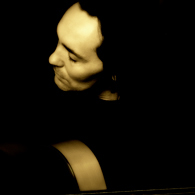

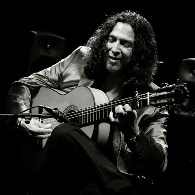
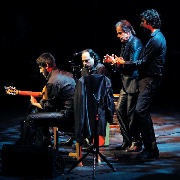


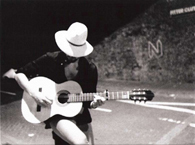



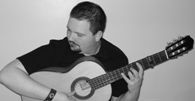
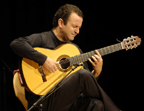
 thank you...u made me proud
thank you...u made me proud  to be a really good accompanist.
to be a really good accompanist. 
 New Messages
New Messages No New Messages
No New Messages Hot Topic w/ New Messages
Hot Topic w/ New Messages Hot Topic w/o New Messages
Hot Topic w/o New Messages Locked w/ New Messages
Locked w/ New Messages Locked w/o New Messages
Locked w/o New Messages Post New Thread
Post New Thread